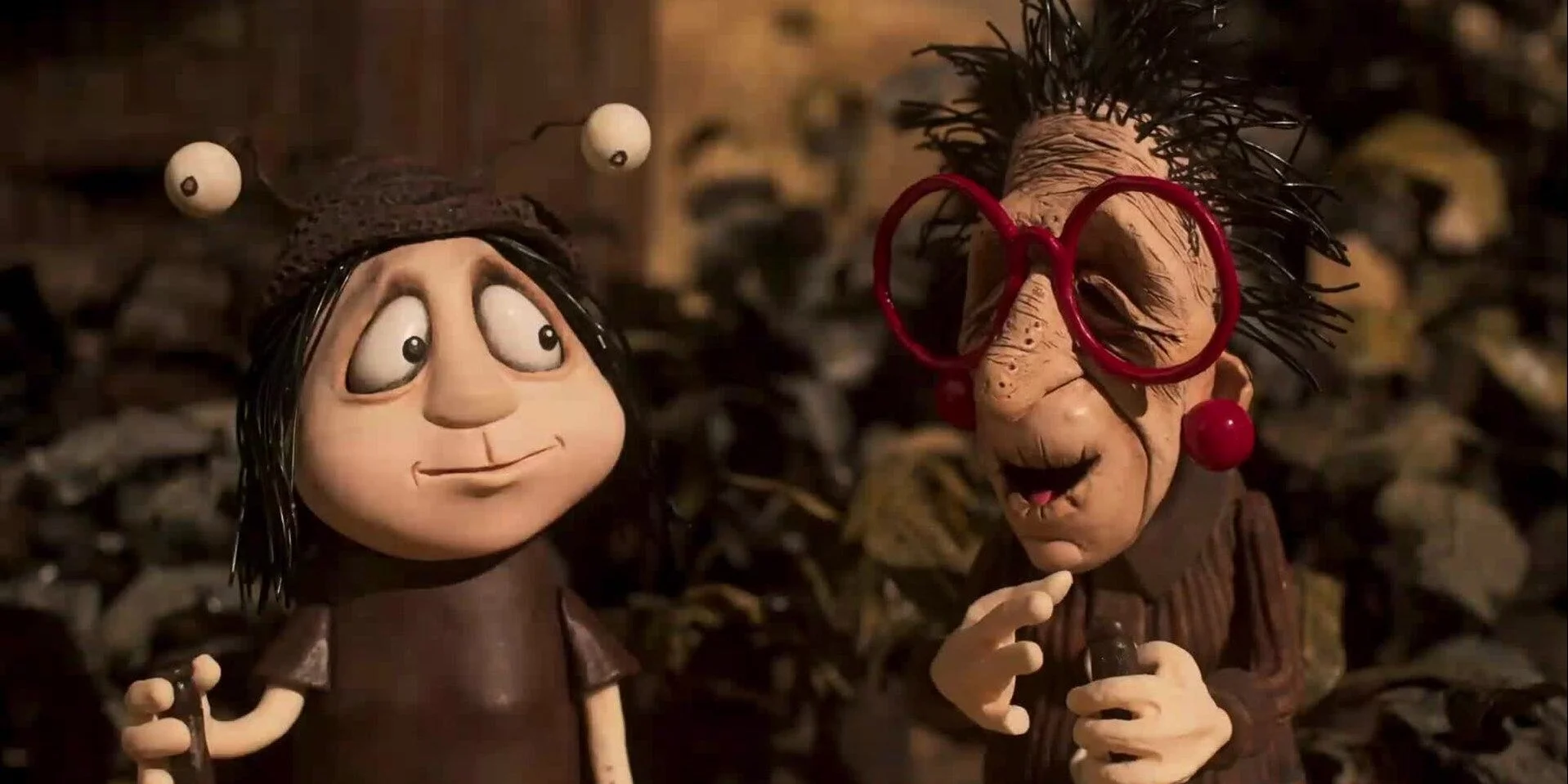MEMOIR OF A SNAIL is a cinematic gift
Memoir of a Snail
Written and Directed by Adam Elliot
Starring Sarah Snook, Kodi Smit-McPhee, Eric Bana, Magda Szubanski, Nick Cave
Runtime 1 hour and 34 minutes
Rated R
Screens at Philly Film Fest Thursday at 6pm tickets here
In theaters October 25
by Shah, Staff Writer
In 2009, writer-director Adam Elliot made a heartbreaking emotional adult stop-motion animated film called Mary and Max which instantly became one of my favorites. The 2009 film draws a thin line between pessimism and optimism. The claymation world Elliot and his crew created for the film is very bleak — yet still has enough spark for something more hopeful for the characters inhabiting that world. With Elliot’s latest release Memoir of a Snail, the Australian auteur showcases something similar, although the sadness and despair presented feel slightly different. Mary and Max mostly deals with loneliness and isolation whereas Memoir of a Snail explores deeper into childhood trauma, grief and people constantly holding out hope that there might be a better life for them amidst this absurdist nihilistic world made out of clay.
“Life can only be understood backwards, but we have to live it forwards.”
Set in 1970s Australia, Memoir of a Snail follows a social outcast and snail hoarder named Gracie Pudel (Sarah Snook). The film is framed through her perspective on life— her mother dying during childbirth, her father’s eventual death, her relationship with her twin brother Gilbert (Kodi Smit-McPhee), their separation, and finally her lonely journey into adulthood. The film constantly throws obstacles on poor Gracie Pudel, causing her to go through an endless cycle of grief. There’s an unbearable weight of depression throughout the entire film as Gracie is stuck with mundane jobs, a house that’s cluttering due to her hoarding problems, and her longing for her twin brother who couldn’t be farther away from her.
Human connection plays a huge role in the overarching story. Despite feeling alone after being separated from her twin brother, Gracie finds herself befriending a kind elderly woman named Pinky (Jacki Weaver). Gracie’s friendship with Pinky is something so pure that oftentimes you forget that they’re living in this oppressive and dystopian world devoid of any vibrant colors. There’s a charming sense of humor in this friendship that I found myself constantly laughing and giggling at everything they say and do. The comedy compliments the darker tone quite well. It’s never one thing or another, it’s an ever-changing clash of tones of light and dark, much like how life works.
The film is a testament to how talented of a storyteller Adam Elliot is, because one moment you’re having fun with the comedy only for it to take a massive turn, hit you like a truck and deliver some horrifying news. For every smile put on Gracie’s face, there’s a series of unfortunate events that are bound to happen to her. It’s a cycle of grief and it’s like trying to stay calm when the walls are closing in on you violently. You can’t help but scream internally because it feels like no one’s there to save you. Sarah Snook’s voice performance in this film is truly remarkable. She captured sadness and despair unlike anything I’d heard before in an animated project. Throughout the film, you can’t help but constantly root for Gracie to find her happiness and joy. The same can be said for Gilbert, her twin brother. While Gracie was sent to Canberra to a somewhat decent (but mostly absent) couple, Gilbert was sent to Perth where he had to live with an abusive family of religious fundamentalists. As Gracie goes through a series of misfortunes of her own, Gilbert suffers through all kinds of abuse orchestrated mostly by his foster mother Ruth (Magda Szubanski).
It can be quite triggering to watch this film especially if you’re a victim of abuse yourself or have gone through depression, but trust me, unlike most tragicomedy, there is a shining light at the end of the tunnel. While there is an absurd amount of despair on display here, a happy ending is never out of the question. It’s quite admirable to see the characters in this movie (victims of abuse and social injustices) hold onto hope and have the strength to keep moving forward, thinking perhaps one day their faith can be rewarded. Life can often feel like one long agonizing waiting game— waiting for that happy ending, that destination we long for, much like a snail in its slow, slow, pace.
In the end, my biggest takeaway is that Adam Elliot’s Memoir of a Snail proves that only humans can create meaningful art. This labor of love is the result of passionate and talented artists crafting the best piece of storytelling through the lens of a stop-motion animation. In this modern day and age of greedy soulless corporate executives trying to push AI into the art form of filmmaking, I’m glad films like this exist to show that some things can only be achieved by the hands of real human beings. Stop-motion animation is a gift, and this is what cinema looks like.



